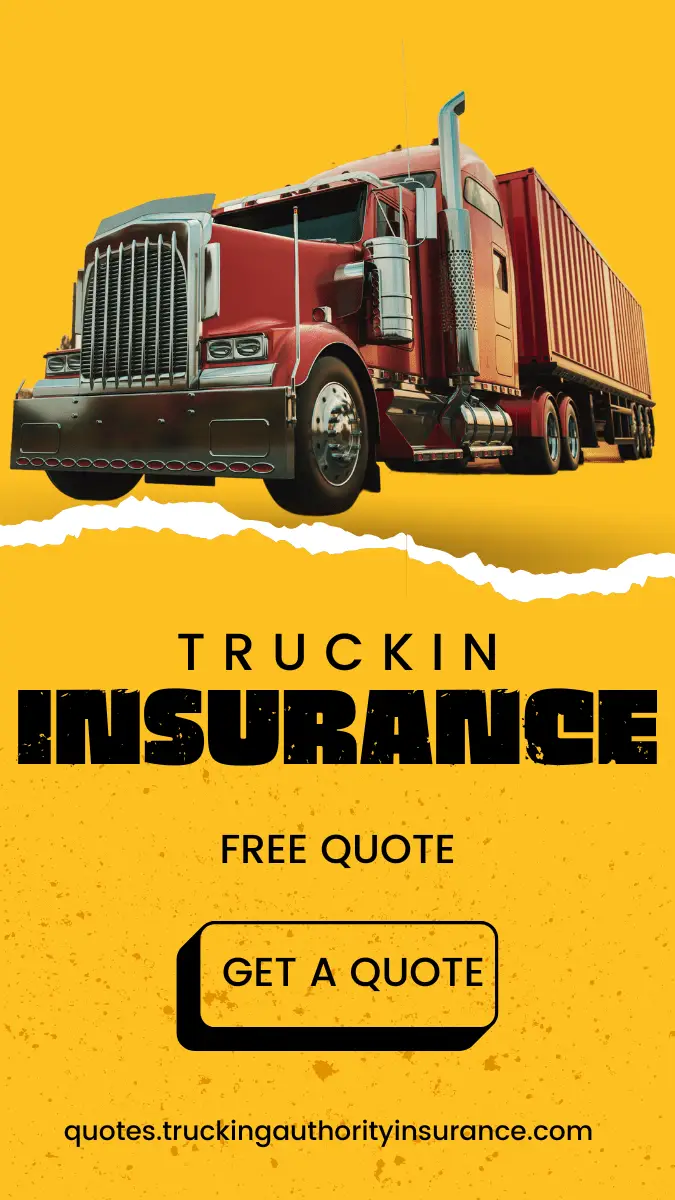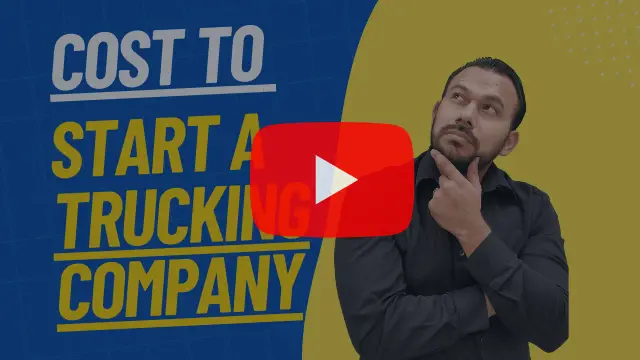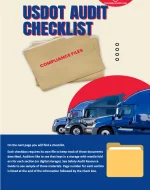Starting a trucking business in Ohio is a promising venture—but it requires more than just buying a truck and hitting the road. To protect your assets and operate legally, forming a Limited Liability Company (LLC) is a smart first step. In this guide, we’ll walk you through how to start an LLC for a trucking company in Ohio, from choosing a name to filing paperwork, registering with the FMCSA, and staying compliant with ongoing state and federal requirements.
At Truckers Authority, we’ve helped countless entrepreneurs launch and grow their trucking businesses successfully—and we’re here to help you do the same.
Why Start an LLC for a Trucking Company in Ohio?
Forming an LLC offers powerful advantages for trucking professionals in Ohio:
- Limited Liability Protection: Protects your personal assets in case of lawsuits or business debts.
- Tax Flexibility: You can choose to be taxed as a sole proprietorship, partnership, or corporation.
- Professional Credibility: Brokers and clients often prefer working with properly registered companies.
- Simplified Management: LLCs involve fewer formalities than corporations, making them easier to run.
Step-by-Step: How to Start an LLC for a Trucking Company in Ohio
Choose a Business Name
Pick a unique name that complies with Ohio naming rules:
- Must include “LLC” or “Limited Liability Company.”
- Must be distinguishable from other registered businesses.
💡 Tip: Use the Ohio Secretary of State Business Search to check availability.
File Articles of Organization
Complete and file Form 533A (Articles of Organization) with the Ohio Secretary of State. You can file online or by mail. The current filing fee is $99.
Appoint a Statutory Agent
Ohio requires every LLC to name a statutory agent (aka registered agent) to receive legal documents on behalf of your business. This can be you, a business partner, or a registered agent service.
Apply for an EIN (Employer Identification Number)
An EIN from the IRS is mandatory for:
- Filing federal taxes
- Opening a business bank account
- Hiring employees
You can apply online at the IRS website for free.
Create an Operating Agreement
While not required in Ohio, an Operating Agreement is highly recommended to outline:
- Ownership percentages
- Management roles
- Profit distribution
- Voting rights
Having this document in place helps prevent future disputes and adds legitimacy to your LLC.
Maintain State Compliance
Ohio doesn’t require annual reports, but it’s crucial to keep your LLC information updated with the state. Also, stay current with taxes and renew any necessary permits or licenses.
Need Help Obtaining Your Permits?
Get Your Trucking Authority Today!
We Can Help You Setup Your LLC & Trucking Authority.
Speak With Our Experienced Permit Professionals That Can Help You Every Step Of The Way.
Call Us Today! Live Agents Are Standing By.
Understanding Business Structures Beyond the LLC
If you’re unsure whether an LLC is the right choice, consider these alternatives:
- Sole Proprietorship: Easy to start, but no liability protection.
- Partnership: Shared ownership; still lacks asset protection.
- Corporation: Strong protection but more paperwork and stricter requirements.
- S Corporation: Offers pass-through taxation with corporate protection.
- Limited Liability Company (LLC): Provides liability protection with tax flexibility.
Learn more at the IRS Starting a Business Guide.
Operating as a Sole Proprietor with a Fictitious Name (DBA)
If you’re running your trucking business solo and not forming an LLC, you may still need a fictitious name, also known as a DBA (“doing business as”).
When Do You Need a DBA?
If you’re using a name like “Buckeye Freight Express” instead of your legal name (John Smith), you must register a fictitious name with your county clerk.
Where to File a DBA in Ohio
Each county may have its own process. Here are links for major counties:
After LLC Formation: Compliance Steps for Trucking Companies
Forming your LLC is just the beginning. Trucking companies must meet federal transportation regulations too.
- Register with the FMCSA
You must register with the Federal Motor Carrier Safety Administration (FMCSA) to get your:
- USDOT Number
- MC Number (for interstate authority)
➡️ Start FMCSA registration here.
- Get Required Permits and Registrations
Depending on your operations, you may also need:
- BOC-3 Filing: Required to activate your MC Authority
- Unified Carrier Registration (UCR): For interstate carriers
- Apportioned Plates (IRP): Needed to operate across multiple states
- IFTA Fuel Tax Registration: Ensures you pay taxes based on mileage/fuel used across states
- Form 2290 (HVUT): Required for heavy vehicles over 55,000 pounds
🔗 Visit our Trucking Authority and Permit Services page for full support.
Common Mistakes to Avoid When Starting an LLC in Ohio
- Choosing a name already in use
- Forgetting to file for an EIN
- Skipping the Operating Agreement
- Ignoring FMCSA requirements
- Not getting proper insurance coverage
Avoiding these pitfalls will save you time, money, and legal trouble down the road.
Real-World Example: Meet Alex from Columbus, OH
Alex wanted to launch a small freight business after driving for a carrier for 5 years. He filed for an LLC, but missed his BOC-3 filing, which delayed his authority for weeks. Once he reached out to us at Truckers Authority, we helped him complete everything from his MC Number, UCR, to IFTA registration. Today, Alex runs two trucks and is expanding.
Trucking Authority Services
Our Additional Services
We offer a comprehensive range of services to support your trucking business:
MC Number Application: Facilitates interstate operations
BOC-3 Filing: Mandatory for activating your authority
Unified Carrier Registration (UCR): Ensures compliance for interstate carriers
Form 2290 Filing: Helps meet IRS HVUT requirements
IFTA and IRP Registration: For multi-state operations
Business Formation Services
• New Business Setup: Forming LLCs, corporations, or partnerships tailored for trucking
State-Specific Permits
• Intrastate Authority & Permits
• IFTA & IRP Registration
Frequently Asked Questions: LLC for Trucking Company in Ohio
Why should I start an LLC for a trucking business in Ohio?
To gain liability protection, tax flexibility, and professional credibility.
How much does it cost to start an LLC in Ohio?
$99 to file with the Ohio Secretary of State.
Is an EIN required?
Yes. It’s needed for taxes, bank accounts, and hiring.
Can I file the LLC paperwork myself?
Yes, but using professional services reduces errors and speeds up the process.
Do I need an Operating Agreement?
Not required, but strongly recommended for clarity and legal protection.
What’s the difference between LLC and DBA?
An LLC is a business entity. A DBA is a trade name for sole proprietors.
What permits are required to operate across states?
MC Number, USDOT, UCR, IRP, state permits, and IFTA registration.
What is BOC-3 filing?
It designates a process agent in each state, required for FMCSA authority.
Can I use my home address for the business?
Yes, but consider privacy and zoning laws.
Can I change my LLC’s structure later?
Yes, you can convert to a corporation or change tax elections.
How long does it take to start an LLC in Ohio?
Typically 1–2 business days online, or longer if mailed.
Do I need commercial insurance before applying for authority?
No, you must have valid insurance to activate your MC Number.
What happens if I don’t comply with IFTA?
You may face penalties and lose the ability to operate in certain states.
What’s the penalty for operating without FMCSA registration?
Fines up to $10,000 and a shutdown order.
Can I drive under my LLC without authority?
Only if you’re operating intrastate and meet state exemptions.







